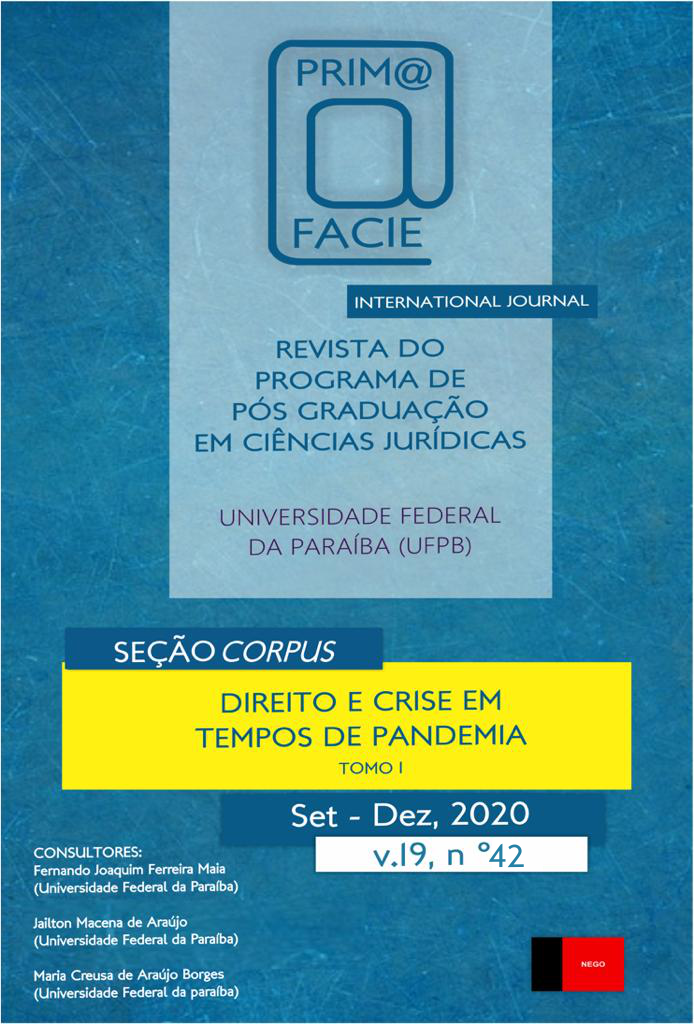The World Of Work During The Pandemic In Brazil: The Increase Of Precariousness Labor Force
DOI:
https://doi.org/10.22478/ufpb.1678-2593.2020v19n42.54286Keywords:
Neoliberalism; World of Work; COVID-19; Flexibilization; Unemployment.Abstract
The coronavirus pandemic caused several and deep changes in the world of work. The research aims to discuss whether the legislative measures adopted by the Brazilian government have been effective in the fight against unemployment and job insecurity during the pandemic. It was pointed out as its general objective to identify if the legislative measures are successful in reducing unemployment. In order to do so, we analyzed the implementation of neoliberalism in the world of work and its consequences, and the most important legislative diplomas issued during the pandemic. It was verified, from the examination of official data, that the regulation of employment is in line with the bias of the business community, deepening the precariousness of labor relations, and revealing itself as not efficient to combat unemployment during the pandemic. Methodologically, the research is qualitative, exploratory, with bibliographic and documentary survey.It is divided into sections that presented a brief overview of the influence of capitalism in the world of labor, the emergence of new legislative and regulatory frameworks and the reflections of advances in neoliberal policies and, to finish, an analysis of its consequences in the destruction of the labor protection laws, resulting in unemployment, flexibility, precariousness and substitution of human capital for technological capital.


